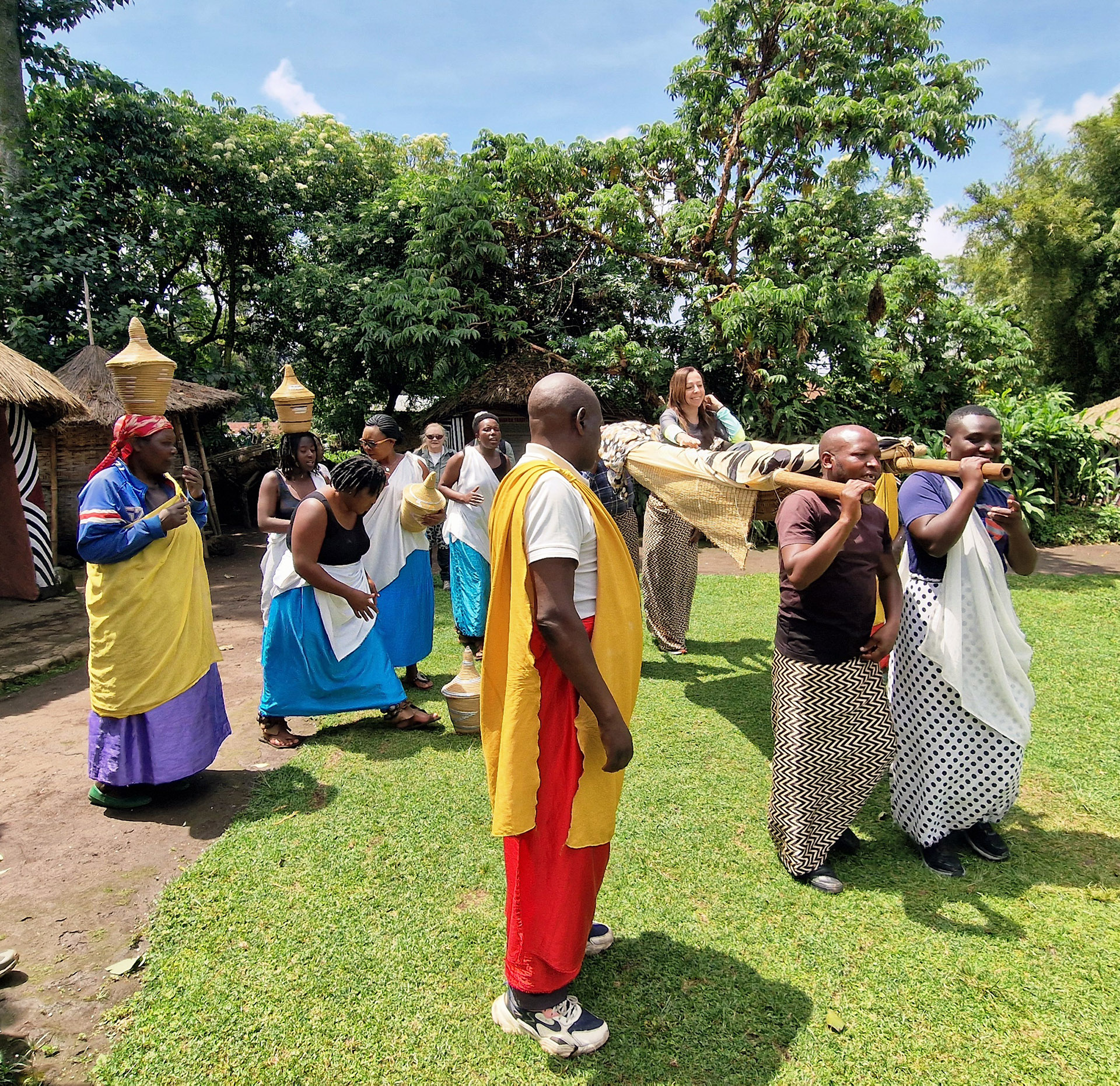The Gorilla Guardians Village, formerly known as Iby’Iwacu Cultural Village, stands as Rwanda’s premier cultural tourism destination located near Volcanoes National Park. This living museum showcases authentic Rwandan traditions, customs, and daily life through interactive experiences led by local community members.

The following plan is a visit to Gorilla Guardians Village:

travel: jeep to Gorilla Guardians Village
food: fruits, sandviches and lunch
including:
PRICE: 350 USD

travel: car to Gorilla Guardians Village
food: fruits, sandviches
including:
PRICE: 250 USD

travel: car to Gorilla Guardians Village
food: fruits, biscuits
including:
PRICE: 200 USD
For any special request/individual itenary/group discount etc., please
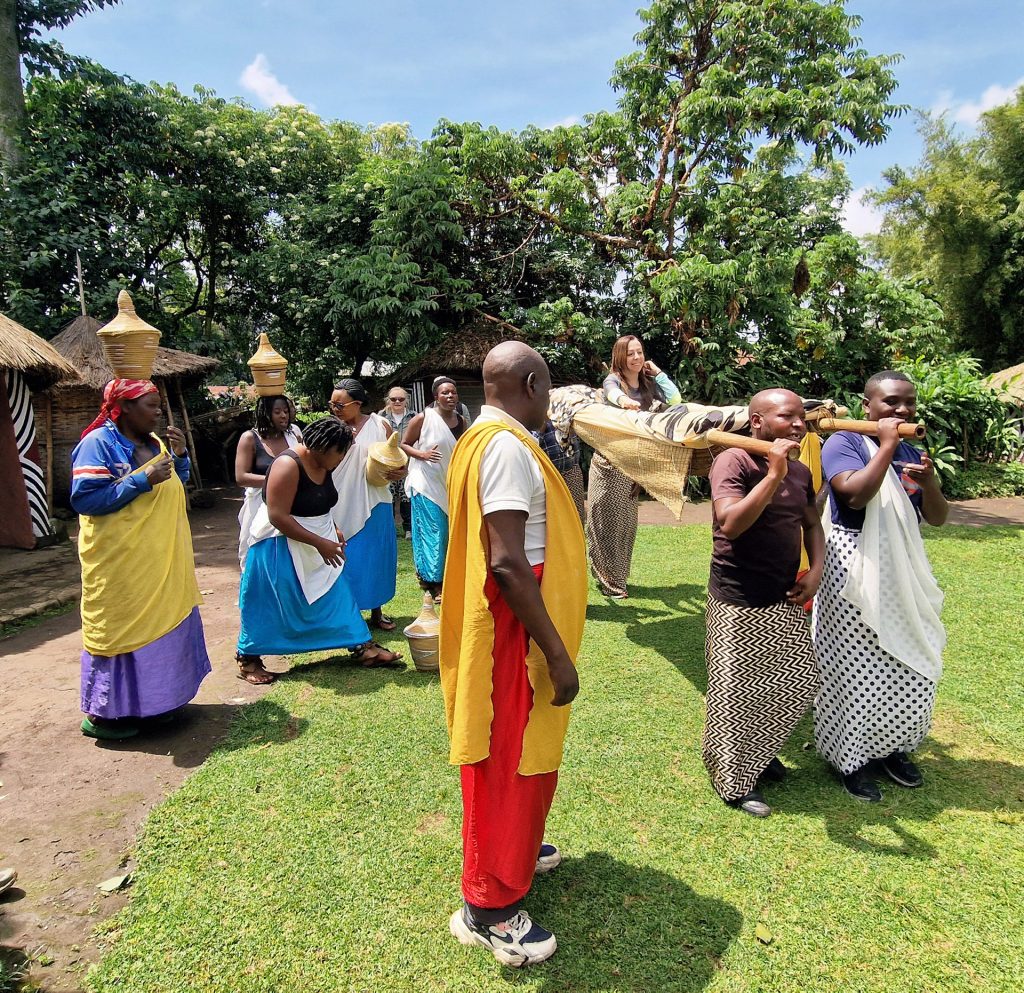
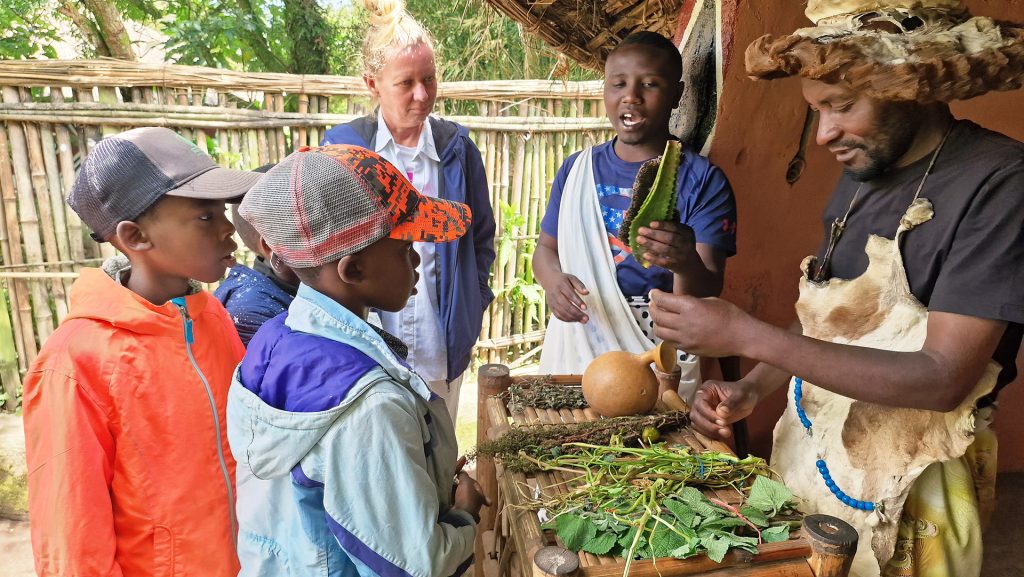
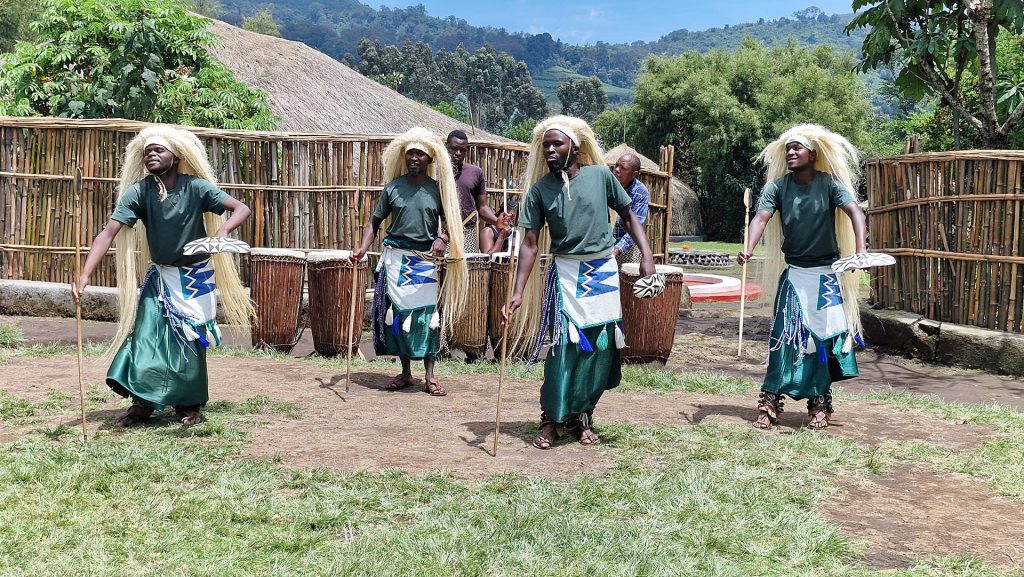
What Is Gorilla Guardians Village / Iby’Iwacu Cultural Village
- Located near Volcanoes National Park in the Musanze District, close to the Sabyinyo trailhead / Kinigi area.
- “Iby’iwacu” in Kinyarwanda means “the treasures of our home and heritage.“
- The Village is a cultural-tourism project founded to help communities living around the Volcanoes Park (who historically used to rely on forests for livelihood via hunting, gathering, or even poaching) transition toward more sustainable livelihoods.
Purpose & Impact
- Conservation & Community: By employing former hunters / poachers as cultural performers, guides, artisans, and ambassadors, the Village gives them alternative income sources so they no longer feel compelled to encroach on protected areas.
- Cultural Preservation: It preserves Rwandan traditions, arts, music, dance, crafts, and oral history. Visitors get to see and participate in many aspects of culture that might otherwise be less visible to foreigners.
- Tourism Enhancement: For people doing gorilla treks in Volcanoes NP, the village provides a complementary cultural experience—something to do before or after trekking.
What to Expect: Activities & Experience
Here are some of the experiences and activities you can do when visiting:
| Activity | Details |
|---|---|
| Cultural performances | Traditional Rwandan dance and drumming (e.g. Intore dance), songs, drama. |
| Crafts & artisan work | Basket weaving, mat weaving, wood carpentry, pottery (especially with the Batwa), crafting other local artifacts. |
| Traditional skills & demonstrations | Using ancient hunting tools, bow & arrows, using grinding stones, preparing certain traditional foods, brewing banana beer. |
| King’s Palace / traditional rulership & ceremonies | A replica of a palace to learn about how pre-colonial Rwandan kingdoms worked; symbolic ceremonies, mock coronations etc. |
| Community walks & home visits | Walking through the village, visiting homes, interacting with elders, visiting local schools, farms/plantations. |
| Batwa community interaction | The Batwa (indigenous, formerly forest dwellers) have a presence, showing their crafts, dances, traditional knowledge. |
| Food & cultural dining | Tasting local Rwandan cuisine, seeing how foods are prepared using traditional methods. |
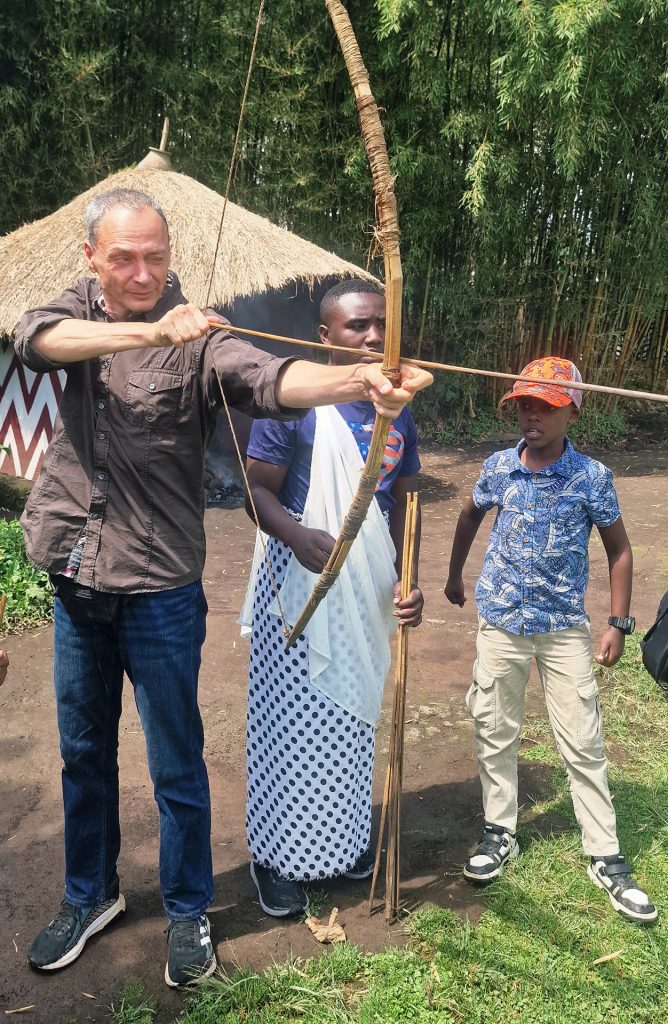
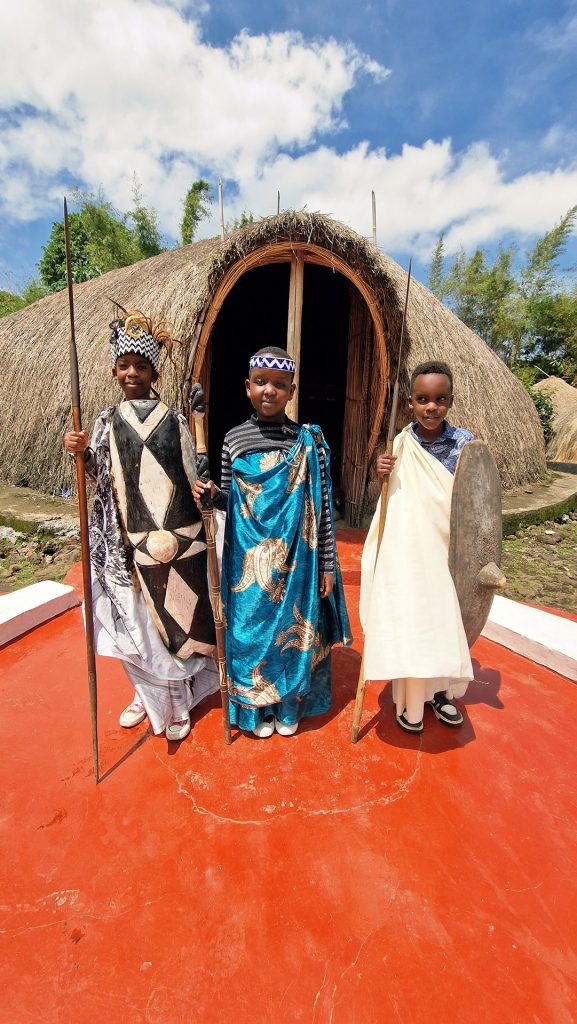
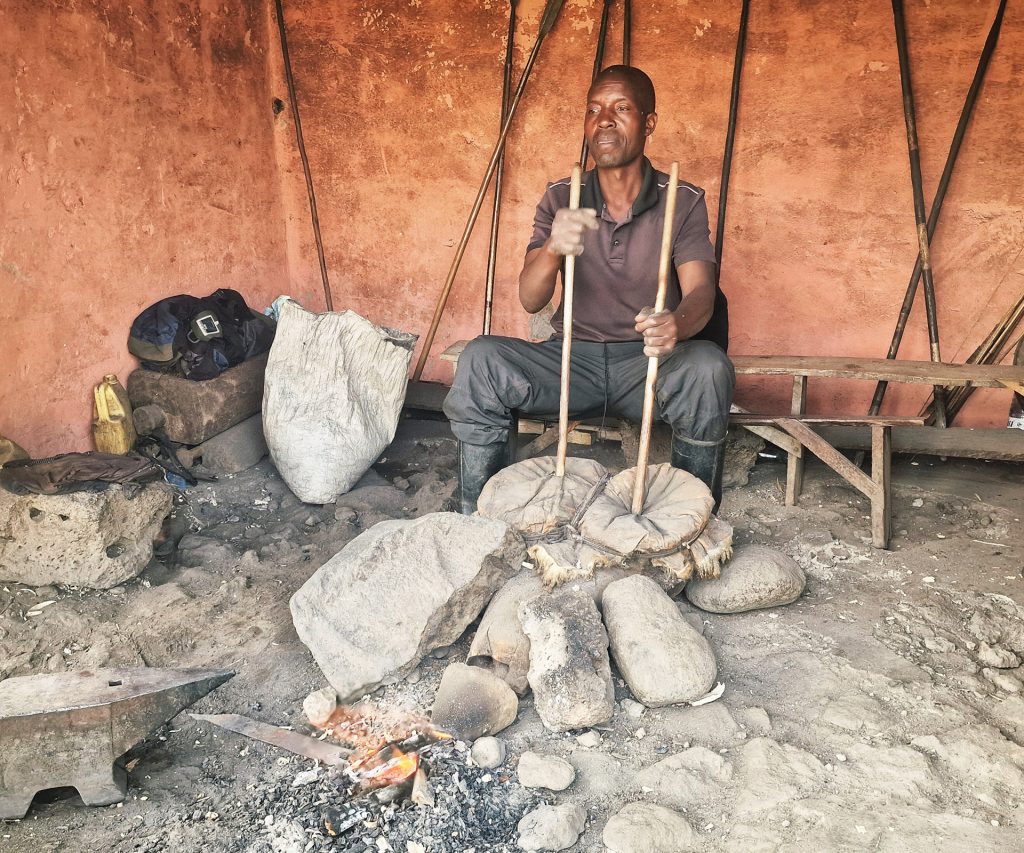
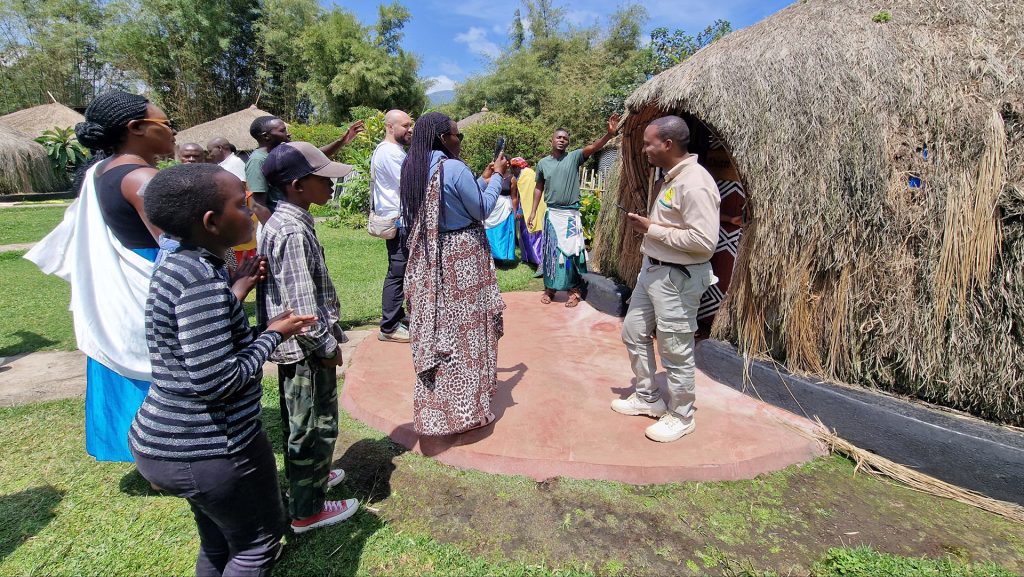
.
